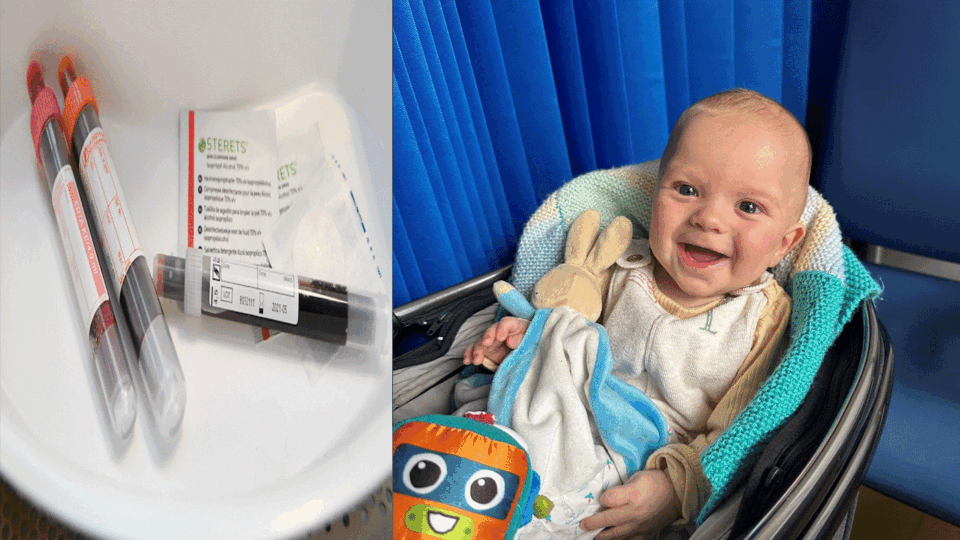New Genetic “Blood Matching” Test Brings Hope for Patients With Rare Conditions
A groundbreaking new genetic blood-matching test has been introduced in the UK to help patients with rare inherited conditions who rely on regular blood transfusions.
This innovative programme will allow doctors to match donor blood more precisely, reducing the risk of serious reactions and improving long-term treatment outcomes.
A First for Rare Anaemias
The test is being rolled out for the first time for patients with rare anaemias, such as congenital dyserythropoietic anaemia (CDA) type 1. Around 300 people are currently eligible, according to NHS Blood and Transplant (NHSBT).
The new method uses genetic testing to provide highly detailed information about a patient’s blood type. This means hospitals can find better-matched donors more quickly than with standard testing.
Backed by Families and Experts
The programme has the support of the family of 22-month-old Woody Mayers, who lives with CDA type 1 and requires transfusions every four weeks. His parents say the new test could make treatments safer and give children like Woody a brighter future.
Kate Downes, Head of Genomics at NHSBT, explained:
“The new test can identify rare blood groups faster and more accurately, ensuring patients get the safest transfusions possible.”
Professor Dame Sue Hill, NHS England’s Chief Scientific Officer, added:
“This is a powerful example of how genomics is transforming healthcare. It’s a major step forward in improving care for patients who need regular transfusions.”
Who Can Benefit?
-
Around 300 patients with rare inherited anaemias
-
All patients with sickle cell disorder and thalassaemia, even if they don’t currently need transfusions
Samples are collected during routine hospital visits, with DNA testing carried out to find the closest blood matches.
Why Blood Donation Matters
Families like Woody’s are also calling for more people to donate blood, as the new test relies on a wide pool of donors to provide safe and compatible transfusions.
Woody’s mother, Polly, shared:
“This test will make a huge difference for Woody and others like him. We hope everyone eligible gets tested — and we urge people to donate blood to save lives.”

